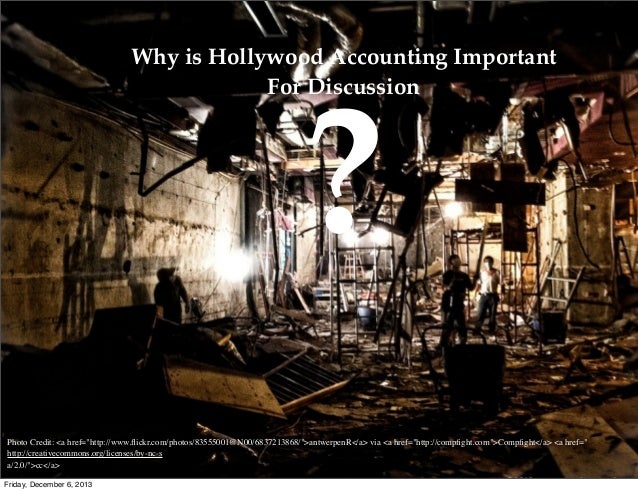
This is done despite the movie earning substantial box office revenues. To reduce the amount owed to actors, writers, and other stakeholders who have profit-sharing agreements. Thus, when summed up, such costs make the project what is hollywood accounting look unprofitable on paper. Consequently, studios can take away vast amounts of film earnings into their expenses, leading to projecting the film as loss-making despite being a massive blockbuster at the box office.
Business
The court stated that a preponderance of evidence proved that Coming to America was based on Buchwald’s treatment especially because Landis and Murphy had full access to this treatment as well as the previous versions of the script. Because of the decision that the story was “based upon” Buchwald’s work, Paramount’s option agreement specified that he would be paid should a movie based on the treatment be made and Buchwald was, in fact, never paid Paramount was found in breach of the contract. While we can’t know exactly how the expenditures broke down (the ledger is both mathematically sound and extremely vague) it’s easy to imagine Warner mandating that Phoenix trailers be placed at the beginning of any New Line or Warner Bros. features for months prior to that film’s release. As a former projectionist I had distributor preview mandates for most every print. Any Warner Home Video releases of Warner or New Line films could (and did) also have Phoenix previews included on the discs. Further, “brother-in-law deals” can easily be made with company advertising outlets including billboards, commercials on the varied Time Warner owned networks as well as empty spots on Time Warner Cable’s feed, full page ads in DC Comics and yes, HBO specials to help promote the film.
Learn how movie accounting rips off actors and leaves producers for broke.
By the time the suit was filed, Nicholson had reportedly been paid $50 million (with estimates today suggesting up to $90 million) and even received a financial interest in Batman Returns (1992), a film he had no involvement in. Guber and Peters were said to have made up to $20 million from the film. Warner Bros. agreed with those numbers and said that this was one reason that final accounting had not been made. Nicholson, at least, received a deal for “gross profits” (a percentage of the receipts before expenses were accounted for), meaning he would get a cut of the box office whether the film was successful or not. Hollywood Accounting is the way production studios avoid paying actors, models, filmmakers, and crew royalties or anything else based on a percentage of profit. Production companies overestimate your expenses, and through accounting practices, there is no profit, or at least a lot less of it – at least on paper, even if the movie makes billions of dollars.
Warner Bros. Discovery’s Max Add-on Subscriptions Launched on Prime Video in Sweden, Netherlands
There are a lot of chefs surrounding the Harry Potter cauldron, all of whom have a stake in the film’s success. There were no less than four Production companies involved with the creation of Harry Potter and the Order of the Phoenix, only one of which is Warner Bros. Cool Music, Heyday Films and a one-off company called “Harry Potter Publishing Rights” were all involved and are likely recipients of profit percentages. It’s not unheard of for actors contracted to long running series to be compensated, in part, by small percentages of the profits and this saga lasted over a decade of these primarily youthful (and arguably irreplaceable) actors’ lives. For example, consider the case of Winston Groom who was promised 3% of the net profits of a film based on a little book he wrote called Forrest Gump.
Creative Producing I
Movies corporations manage to record a loss by maximizing costs. Well, the film industry is so notorious for financial shenanigans that “Hollywood accounting” has become a thing. Talent can protect themselves by seeking legal advice during contract negotiations and ensuring their profit-sharing agreements are clear and comprehensive. They can also request transparency in financial reporting and conduct audits to verify the accuracy of the studio’s financial statements. All of the above means of calculating overhead are highly controversial, even within the accounting profession. Namely, these percentages are assigned without much regard to how, in reality, these estimates relate to actual overhead costs.

Amazon Favorites That Have Earned a Spot In Everyone’s Cart
This way, two unprofitable projects are created out of one on paper alone, primarily for the purpose of eliminating net participation liabilities. The specific schemes can range from the simple and obvious to the extremely complex. By way of comparison, Jack Nicholson was lured to the (then-believed risky) role of The Joker with top billing a $6 million paycheck and an unspecified percentage of the gross.
- While we can’t know exactly how the expenditures broke down (the ledger is both mathematically sound and extremely vague) it’s easy to imagine Warner mandating that Phoenix trailers be placed at the beginning of any New Line or Warner Bros. features for months prior to that film’s release.
- Warner Bros. and Fox are definitely not the only companies in Hollywood to employ this sort of creative accounting (nor is this merely a Hollywood phenomenon, if the word “Enron” means anything to you).
- Because of the decision that the story was “based upon” Buchwald’s work, Paramount’s option agreement specified that he would be paid should a movie based on the treatment be made and Buchwald was, in fact, never paid Paramount was found in breach of the contract.
- If there is any lesson to be learned here, it’s that Hollywood Creative Accounting will always be a standard practice as long as there are pieces of the financial pie to share.
A tort suit against Paramount could have huge implications, not just for that studio, but for the entire system. If net profit formulas in studio contracts do not correspond to generally accepted accounting principles those same studios might face something as frightening as an audit from the Securities and Exchange Commission. And if that were to happen, the entire profit hiding scheme might become a thing of the past. This wasn’t the first time Paramount allegedly worked around paying a writer for his work. Way back in 1982 humorist Art Buchwald pitched a treatment to Paramount called “It’s A Crude, Crude World”, which was later renamed King for a Day.
Over the years, there have been signs that the studios’ clever tricks would catch up with them. To identify the top 25, Glassdoor averaged each company’s overall employee rating as well as ratings across eight workplace satisfaction categories (see “How This List Came Together” on page 38). Working in Hollywood may not be as sexy or as lucrative as it used to be, but you might want to hold off on signing up for that coding class just yet. Because even amid such uncertain economic times, the entertainment industry still offers some of the most rewarding careers on earth. There are the creative thrills (when you’ve got a hit), unique perks (your movie night is opening night) and potentially massive payoffs for those with the stamina to hang on (have you heard about Iger’s new yacht?). Right there in black and white are the beautiful words illustrating that a full three percent of the film’s profits are yours, yours and only yours.
Naturally, the frankly astounding capability of studio accountants to turn even the biggest box office smash into a failure on paper has led to a running joke in the industry that the most creative people in Hollywood are the guys who do the books. Distribution fees (think the marketing for a film) can send upwards 30% of what a film makes back to the studio by reporting outrageous marketing costs. Hollywood accounting is a system shrouded in mystery, speculation, and intrigue. While some insiders have shared their experiences, like director Scott Derrickson’s claim that his profit deal for “The Exorcism of Emily Rose” was worth less than a sandwich, the system remains intact. As the spotlight continues to shine on Hollywood, only time will tell if this unique accounting practice will ever face its final curtain call. Studios craft tales of non-existent costs, ensuring all profits are funneled back to them.
Despite its successful opening and nearly $682 million in revenue, the Oscar-winning film lost $62 million. Additionally, it has specific pros concerning studios, like maximized profits and giving an extra layer of funding in financial management. It also has cons, like unfair profit sharing with the participant of the project, violation of the project sharing agreement, and lawsuits by the aggrieved parties.


